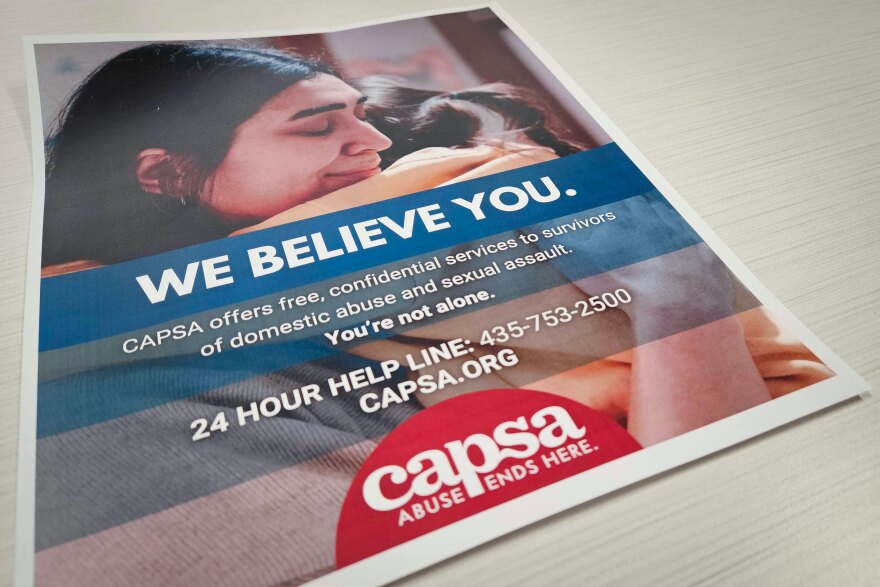During the federal government shutdown, Utahns have been furloughed from their jobs and had food stamp benefits interrupted. Now, some domestic violence service providers in the state worry the resulting stress could lead to more violence at home.
The connection between economic stress and domestic violence is long established, said Jess Lucero, head of Utah State University’s social work department. Intimate partner violence is a problem across the socioeconomic spectrum, but financial stress can exacerbate it, she said.
“When enough stressors are introduced into the family system, that, you know, it diminishes your coping resources and just makes the likelihood of violence occurring higher.”
The relationship between violence and economic hardship is reciprocal. Violence can cause economic instability, and financial stress can cause or prolong violence, Lucero said. In Utah, adults who have experienced domestic violence report more economic consequences than those who have not, according to a 2023 report from the Utah Women & Leadership Project. They’re more likely to miss work, struggle to concentrate and binge drink.
“When you're in a violent relationship, if you don't have the economic resources to leave, it also increases the likelihood that you will stay,” Lucero said.
During the 2008 financial crisis, researchers analyzed the impacts of economic stress. More recently, Cache County saw more people seeking help for domestic violence at the onset of the COVID-19 pandemic.
CAPSA, a domestic violence service provider in Logan, experienced that firsthand. The nonprofit offers shelter, transitional housing and mental health services. It saw a 125% increase in clients served during the first six months of the pandemic, according to its 2021 annual report.
That precedent has CAPSA CEO Jill Anderson concerned about a spike in need as the shutdown drags on.
“Experience shows that when stressors in society go up, that the domestic violence, or the need for our services, go up,” she said.
One in three Utah women will experience some kind of domestic violence in their lives, ranging from sexual violence to physical and psychological attacks.
CAPSA is also worried about its own finances. Anderson hasn’t heard any updates about federal grants that were supposed to start Oct. 1. Grantmaking offices at the Department of Justice have been closed since the shutdown began, according to Politico.
“We do have some reserve that we can weather the storm a little bit, but if it goes on too long, then we worry about what the impact will be,” Anderson said.
The nonprofit has been forced to get creative.
To mitigate the effects, CAPSA is encouraging supporters to donate to the Cache Community Food Pantry, which has long helped provide food to shelter residents. It’s also meeting individually with donors, some of whom have increased their contributions, Anderson said. A new crop of volunteers recently completed a 40-hour training that began when the shutdown was just a possibility. If there’s a sharp increase in calls to the organization’s 24-hour support line, they are prepared to shift staffing to meet the need.
Many people take for granted the ability to recharge at home, Anderson said.
“This shutdown creates even more barriers and more stress on people who aren't even safe at the core of their life, their very own home,” she said. “And the impact in that is just so huge.”
Macy Lipkin is a Report for America corps member who reports for KUER in northern Utah.






